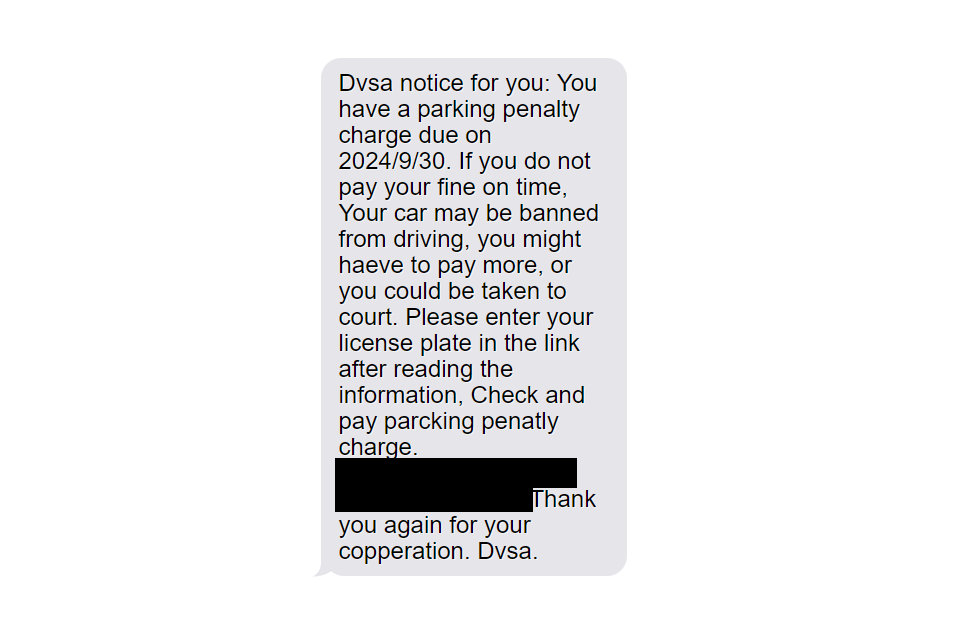Beware of DVSA Scam: Protect Yourself from Fraud
What Does the Scam Look Like?
The scam text messages warn that you have incurred a parking penalty charge and face severe consequences if you fail to pay. The messages often contain the following threats:
- Banned from driving
- Higher fines
- Court action
They ask you to follow a link to enter your vehicle’s registration number and pay the non-existent fine. The messages are written to create a sense of urgency, pressuring you to act quickly to avoid the alleged penalties.

Here is an example of the type of scam messages people have been receiving:
“DVSA notice for you: You have a parking penalty charge due on 2024/09/30. If you do not pay your fine on time, your car may be banned from driving, you might have to pay more, or you could be taken to court. After reading the information, please enter your license plate in the link, check it, and pay a parking penalty charge. Thank you again for your cooperation.”
These messages are typically followed by reminders, which escalate the threats, including claims that you are on the verge of being prosecuted and that your vehicle will be banned from the road.
DVSA Does Not Issue Parking Fines
Knowing that the DVSA does not deal with parking fines is essential. Local councils or private parking companies handle parking penalties. Any message suggesting otherwise is a scam. The DVSA is responsible for driver and vehicle safety standards, not the enforcement of parking penalties.
How to Protect Yourself
Here are some steps to protect yourself from this scam and others like it:
- Do not click on links in unexpected texts or emails – If you receive a message like the one described, avoid clicking any links. These could lead to fraudulent websites that steal your personal information or money.
- Check the source – Genuine communication from government agencies like the DVSA will never ask you to pay a parking fine. If unsure, visit the DVSA’s official website or contact them directly to confirm any claims.
- Look for signs of a scam – Scammers often make spelling and grammatical errors, use unusual email addresses or phone numbers, and create a sense of urgency to force you into acting quickly.
- Report the scam – If you receive a suspicious text or email, you can report it to the National Cyber Security Centre or forward the message to 7726.
What to Do If You've Been Targeted
If you believe you have clicked on a fraudulent link or provided personal details, take action immediately:
- Change your passwords on any affected accounts.
- Contact your bank to alert them of potential fraud.
- Report the scam to Action Fraud to help prevent others from falling victim.
Stay Safe, Stay Informed
Scammers are constantly looking for new ways to trick people, but you can protect yourself by staying informed and vigilant. Remember, the DVSA will never text you about parking fines or demand payment through a link.
If you need more information or have concerns, do not hesitate to contact our safeguarding team for support.